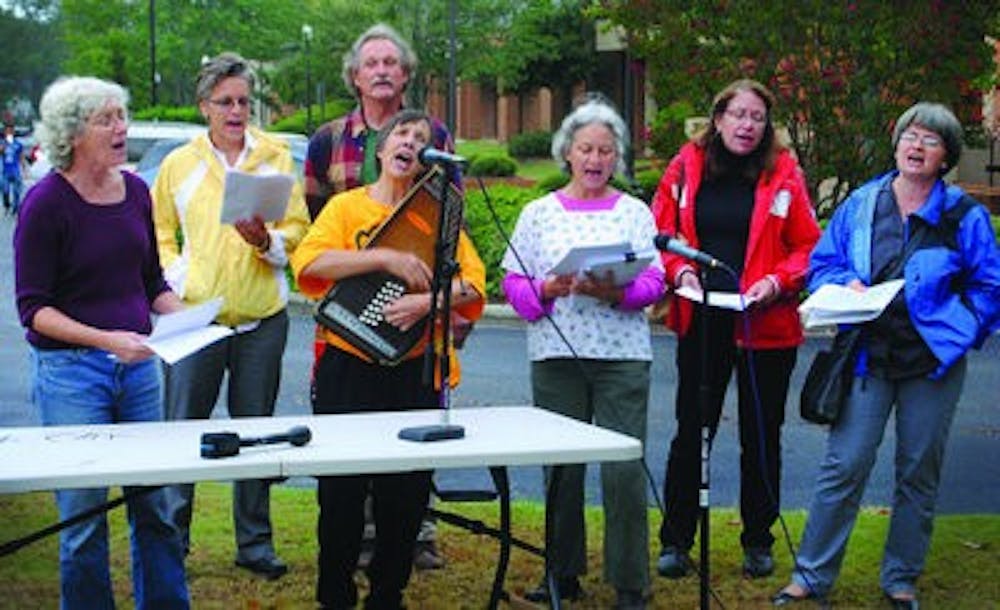Some held umbrellas. Some held signs. But they all held one thing in common--a view in opposition to House Bill 56.
The new immigration legislation from the Alabama legislature involves multiple new restrictions, such as prohibiting anyone from transporting or helping anyone without documentation.
It's this particular restriction that brought Christine Shumock to a vigil held in opposition of the bill Tuesday night.
"To practice my religion--which, all the great religions are religions of compassion-- ... I'm supposed to help the stranger," said Shumock, who carried a sign bearing those words from Matthew 25:35. "I think this is totally unfair."
The vigil was sponsored by the Standing on the Side of Love Alliance and the Auburn Ministerial Association. Three individuals read statements, including a proposed resolution for the city council.
"Fundamentally for me, it's ludicrous to talk about illegal and legal in the terms in which we are doing," said Jennifer Brooks, one of the speakers for the evening. "That's not to say we shouldn't have immigration laws ... but the way that we've chosen to do this seems, to me, very destructive."
For some, the implications of the legislation hit even closer to home.
"I look illegal; I know that," said Yasser Gowayed, who is of Egyptian descent. "Every time I go from home to work, I'll be stopped by police ... How long do you think I would take that before I leave the city?"
After the vigil and protest, many in attendance went to the City Council meeting, where several stood to speak during the citizens' communications portion.
"What happens in this case, I think, is a clash between moral law and civil law," said Richard Penaskovic, philosophy professor and officer of the Auburn Ministerial Association. "There's a higher law that transcends the civil law, and I think that's exactly the case in this anti-immigration law."
While those who attended the vigil and spoke at the City Council meeting were vocal about their views, some members of the council were less willing to take a stand.
"One thing I've learned early on in this council is not to make emotional decisions," said Councilman Gene Dulaney. "From what I've read, there are things about the law that do concern me from an enforcement standpoint, but at the same time there are impacts to our community from a national standpoint ... For me personally, I want to have the opportunity to look at those before I make a decision as to whether I support it or not."
While Federal Judge Sharon Blackburn will make a ruling on the legislation soon, those opposed to it will keep speaking out.
"I do believe one person can make a difference, but I think we can make a bigger difference when all of those single people are acting together," Brooks said. "You'll never know who's out there to help you do that until you stand up and try to find out."
Do you like this story? The Plainsman doesn't accept money from tuition or student fees, and we don't charge a subscription fee. But you can donate to support The Plainsman.





